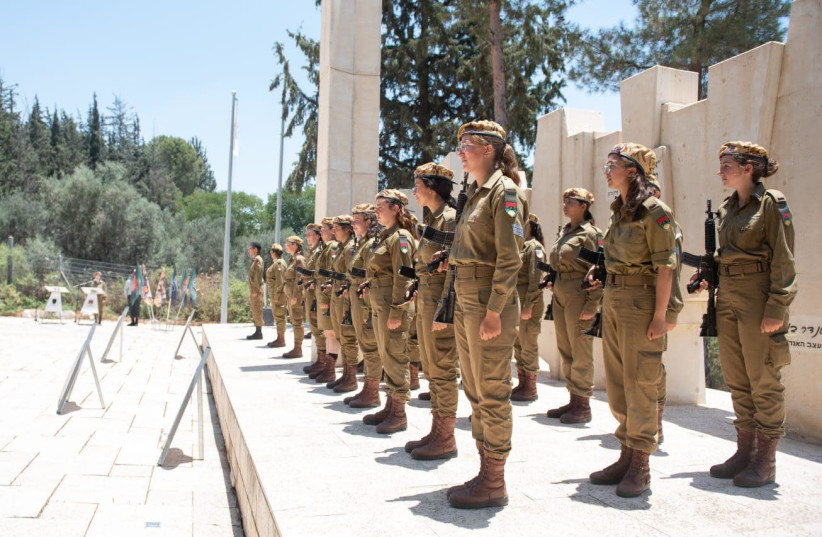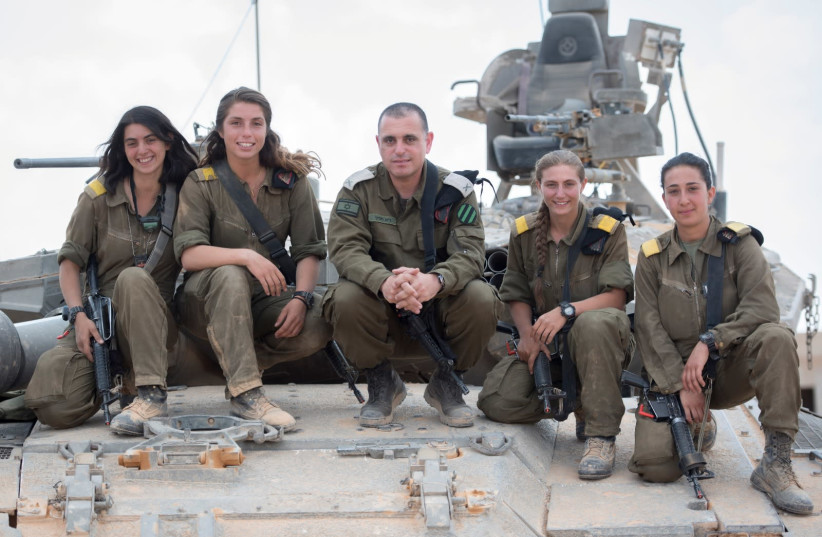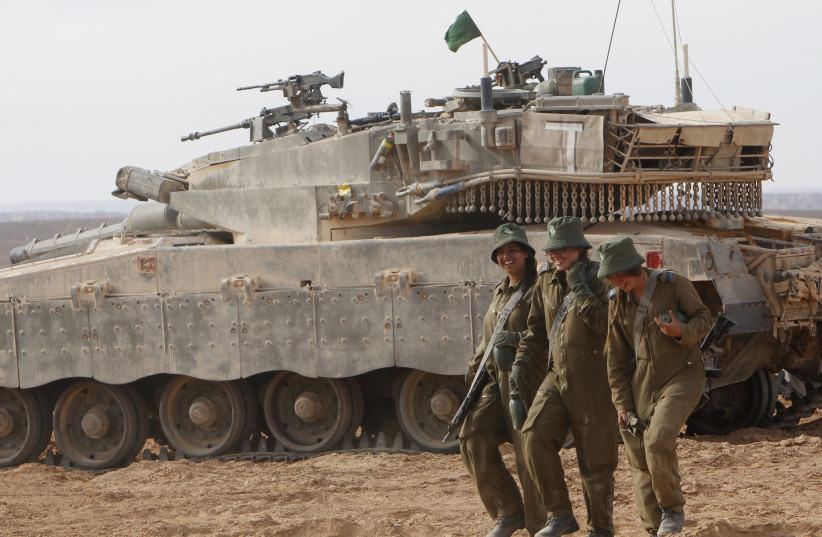The IDF has decided that female soldiers can serve in the Armored Corps’ tank brigades along the country’s borders, following a successful pilot program.
Chief of Staff Lt.-Gen. Aviv Kohavi accepted the recommendation of Ground Forces head Maj.-Gen. Tamir Yadai.
“From now on, they will be permanently assigned to the position,” the military said.
Kohavi said the army recently concluded a professional and in-depth process to start opening up more and more combat positions for women.
“I trust the female soldiers serving in the tank to carry out the mission of border defense professionally and with great success,” he said. “They will be a significant part of the IDF’s operational effort.”
What caused this decision by the armed forces?
The decision was made based on both “professional and operational considerations in accordance with the needs of the military,” the IDF said, adding that all female soldiers who completed the program met all the pre-defined criteria.
They included successful team-building and effective command over the regimental framework that integrates both infantry and armor, prolonged motivation to serve in the position, and not exceeding the average dropout for female combat soldiers.
The pilot program lasted two years and included a training period as well as a year-long operational deployment along the Egyptian border, with the female soldiers serving under the command of the Paran Brigade as tank operators in the mixed-gender Caracal (Wild Cat) Battalion. The program saw three full recruitment and training cycles, with several of the women completing the program as officers.

Caracal is one of four mixed-gender infantry units within the IDF’s Border Defense Corps, which is responsible for defending the borders with Jordan and Egypt. The 240-km. desert frontier with Egypt sees regular smuggling attempts as well as terrorist attacks by Islamic State – Sinai Province.
After the end of the pilot, which began in November 2020 and finished in August, the military found that the women were able to meet the majority of the criteria and carry out the mission successfully. And while there remain certain issues that need to be worked on such as infrastructure, the military did not think that the pilot failed in any way.
Following Kohavi’s decision, the framework that currently exists will become permanent, and women will be able to be drafted into the tank brigades in future draft cycles. They will serve in companies under the Border Defense Corps to strengthen the battalions along the borders.
There are currently four tank crews that have been deployed along the border with Egypt. Two women have become officers and another three are currently cadets in the officers course in Bahad 1. Another 26 commanders have been trained, and the battalion and division commanders have expressed their satisfaction with the female tank crews.
Starting off strong at the Egyptian border
LAST JULY, 15 female combat fighters were deployed to the Egyptian border as part of the pilot program. They operated Merkava IV tanks after they completed their training at the Armored Corps School at the Shizafon Base in the Negev.
Cpl. Noam Hen, a driver of one of the tanks deployed to the border, said recently she was shocked to see that she was driving such a powerful platform.
“Driving a tank is not like driving a car,” she said as she showed this reporter her tank. “As a driver, the biggest fear is a fire. There’s a lot of danger inside a tank, not only from the enemies who are outside.”
The women in the pilot program are doing the exact same thing as their male counterparts, she said. They went through the same basic training and are carrying out the same operational orders along the border.
“The hardest thing about being in the Armored Corps is taking care of the tank. Tanks need a lot of love and care. It takes a lot of energy, 24/7,” Hen said.

Nineteen women began the second pilot and completed basic training with troops from the mixed-gender Border Defense units, with 15 of them completing advanced training as tank operators.
The IDF first announced in June 2018 that the military had successfully completed a pilot program to train women on tanks. Two-thirds of the women who started the program finished, including four who became tank commanders. But in April 2019, the military announced that despite the successful pilot program, women would not be able to serve in the Armored Corps.
The second pilot program was at least twice the size of the previous one. The military increased the height and weight requirements of women who wanted to take part in the program and expanded the time that women will be deployed to carry out operational missions along the borders with Egypt and Jordan.
According to the military, Kohavi, officers from the General Staff and other senior Armored Corps officers have held extensive discussions examining the integration of women into tanks that would be deployed along the borders.
The discussions included a thorough clarification of the achievements and results of the initial pilot, as well as insights and analysis of medical data from women in combat roles in other corps in the military.
Following the discussions, Kohavi decided that while the pilot showed the real potential for women in the Armored Corps, there were also several deficiencies, including the difficulty of loading shells.
In January 2020, two of the women who completed the pilot, Osnat Levi and Noga Shina, along with Afik Shema, one of the officers who accompanied their training, filed a petition against the decision to bar women from the Armored Corps.
Several months later, in September, 19-year-old Or Abramson from Karnei Shomron, and Maayan Halberstadt of Jerusalem, also filed a petition seeking to have the military explain why women are barred from serving as tank drivers, gunners, radio operators and commanders.

Their petition, which calls for the Supreme Court to change regulations to allow women to serve in frontline combat positions, says the army’s refusal to let them serve in tanks is a substantial violation of equal rights.
